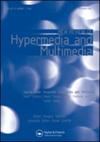使运动选择适应表现、努力和自尊
IF 0.8
4区 计算机科学
Q3 COMPUTER SCIENCE, INFORMATION SYSTEMS
引用次数: 6
摘要
摘要在智能辅导系统中为学习者选择练习时,适应学习者的特点至关重要。本文研究了人类如何根据学习者的个性、投入的脑力劳动和表现来调整下一个练习选择(特别是难度水平),以启发一种自适应的练习选择算法。首先,本文描述了为主要研究制作验证材料的调查,即自尊人格故事、心理努力陈述和不同难度的数学练习的创建和验证。接下来,通过实证研究,我们调查了学习者自尊(低自尊与高自尊)和努力(最小、少量、中等、大量和所有可能的努力)对运动选择的影响。三项研究针对在之前的练习中表现不同的学习者进行了调查:只是及格,只是不及格,表现良好。参与者考虑一个具有一定表现、自尊和努力的虚构学习者,并选择下一个数学练习的难度等级。我们发现,自尊、脑力劳动和表现都会影响为学习者选择的练习的难度水平。最后,利用研究结果,我们提出了一种算法,根据学习者的特点选择不同难度的练习。本文章由计算机程序翻译,如有差异,请以英文原文为准。
Adapting exercise selection to performance, effort and self-esteem
ABSTRACT Adapting to learner characteristics is essential when selecting exercises for learners in an intelligent tutoring system. This paper investigates how humans adapt next exercise selection (in particular difficulty level) to learner personality, invested mental effort, and performance to inspire an adaptive exercise selection algorithm. First, the paper describes the investigations to produce validated materials for the main studies, namely the creation and validation of self-esteem personality stories, mental effort statements, and mathematical exercises with varying levels of difficulty. Next, through empirical studies, we investigate the impact on exercise selection of learner's self-esteem (low versus high self-esteem) and effort (minimal, little, moderate, much, and all possible effort). Three studies investigate this for learners who had different performances on a previous exercise: just passing, just failing, and performed well. Participants considered a fictional learner with a certain performance, self-esteem and effort, and selected the difficulty level of the next mathematical exercise. We found that self-esteem, mental effort, and performance all impacted the difficulty level of the exercises selected for learners. Finally, using the results from the studies, we propose an algorithm that selects exercises with varying difficulty levels adapted to learner characteristics.
求助全文
通过发布文献求助,成功后即可免费获取论文全文。
去求助
来源期刊

New Review of Hypermedia and Multimedia
COMPUTER SCIENCE, INFORMATION SYSTEMS-
CiteScore
3.40
自引率
0.00%
发文量
4
审稿时长
>12 weeks
期刊介绍:
The New Review of Hypermedia and Multimedia (NRHM) is an interdisciplinary journal providing a focus for research covering practical and theoretical developments in hypermedia, hypertext, and interactive multimedia.
 求助内容:
求助内容: 应助结果提醒方式:
应助结果提醒方式:


